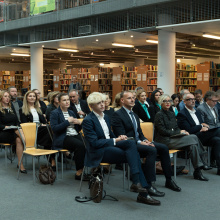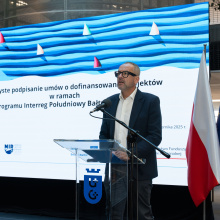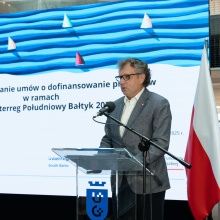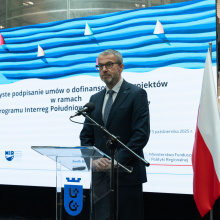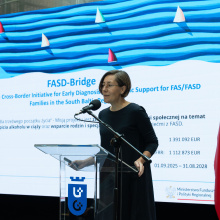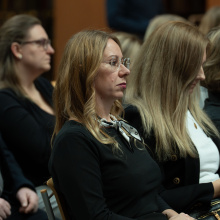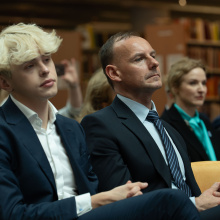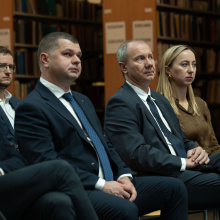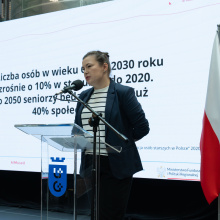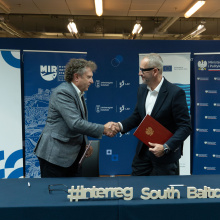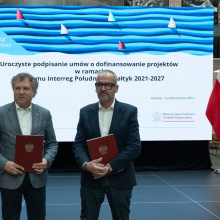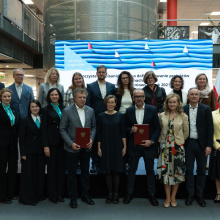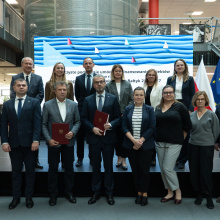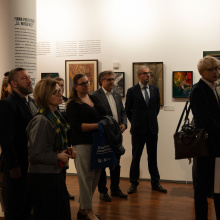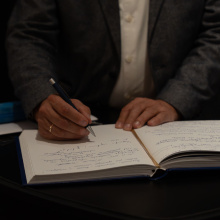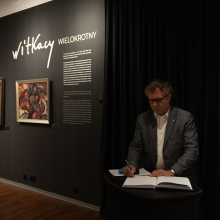FASD-Bridge and AIMused are the acronyms of two projects carried out under the Interreg South Baltic 2021-2027 programme, which have received co-financing from the Ministry of Funds and Regional Policy. The first will be co-implemented by the Institute of Psychology of the University of Gdańsk (project leader), the second by the Gdynia Aquarium MIR-PIB. The agreements on co-financing both projects were signed on 13 October 2025 at the UG Library.
The meeting, which culminated in the ceremonial signing of agreements for co-financing two Interreg South Baltic 2021-2027 projects, was attended by, among others, the Secretary of State at the Ministry of Funds and Regional Policy, dr Jacek Karnowski, the Rector of the University of Gdańsk, prof. dr hab. Piotr Stepnowski, Director of the Sea Fisheries Institute - National Research Institute, dr Piotr Margoński, as well as people directly involved in the projects: dr Aleksandra Lewandowska-Walter from the Institute of Psychology at the University of Gdańsk (FASD-Bridge) and Grażyna Niedoszytko from the Communication and Promotion Section of the Gdynia Aquarium MIR-PIB (AIMused).
A few words about the projects
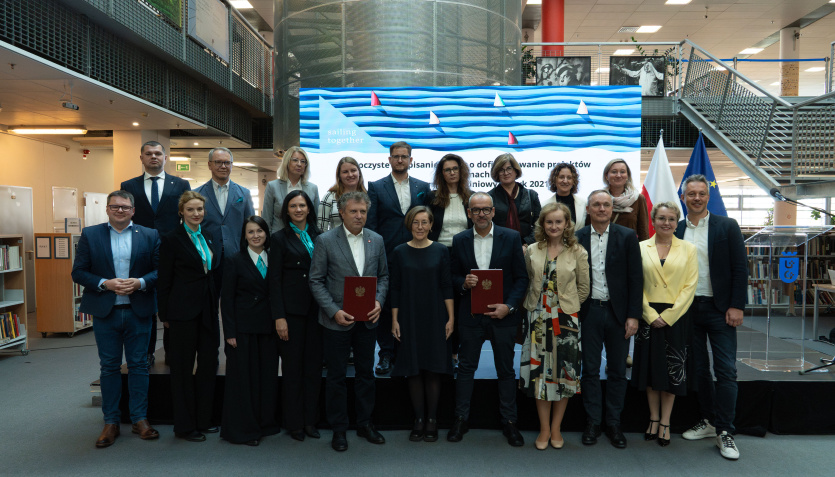
FASD-Bridge - Comprehensive Cross-Border Initiative for Early Diagnosis and Holistic Support for FAS/FASD Families in the South Baltic Region
Dr Aleksandra Lewandowska-Walter, project manager on behalf of the University of Gdańsk, spoke about the FASD-Bridge project. She explained the differences between FAS (foetal alcohol syndrome) and FASD (foetal alcohol spectrum disorder) and described the stages of human development at which these disorders can manifest themselves. She drew attention to the continuing need to raise awareness of the consequences of alcohol consumption during pregnancy. At the same time, she emphasised the need to ‘take care’ of people who are dealing with these consequences in various ways (including carers of children with FAS/FASD).
‘It is important for us to build bridges between specialists, experts from the medical and psychological communities, but also teachers,’ explained dr Aleksandra Lewandowska-Walter. ‘Parents and carers of children with FASD, who will be involved in the project, are also an important group for us.’
The project manager emphasised that FASD is an example of a disorder that is 100% preventable. That is why it is so important to raise public awareness about the consequences of foetal alcohol exposure.
FASD-Bridge activities include:
- epidemiology, i.e. diagnosis of the scale of the phenomenon in the region and improvement of early diagnosis of FAS/FASD
- development of a model for comprehensive support for families raising children with FASD
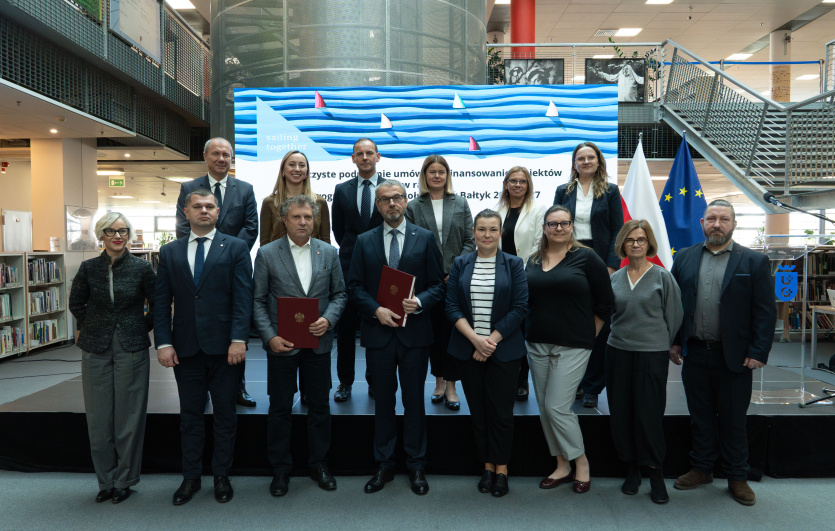
AIMused - Accessibility Integration and Artificial Intelligence for Museums
The objectives of the AIMused project were presented by Grażyna Niedoszytko, Head of the Communication and Promotion Section at the Gdynia Aquarium MIR-PIB.
The aim of the project is to ensure maximum cognitive accessibility of exhibitions for visitors to the Gdynia Aquarium, including people with disabilities, understood not only as physical limitations, but also as ‘a condition that hinders the performance of certain activities or interaction with the environment’.
‘Society is changing, the world of humans is changing much faster than the world of animals, and making our exhibitions cognitively accessible is our first challenge,’ said Grażyna Niedoszytko.
Artificial intelligence, which those involved in the project want to use for good purposes (hence the acronym AIMused), is to help increase the accessibility of exhibitions. ‘Despite the fact that this project is technology-oriented and technology-based, the centre of this project remains the human being,’ emphasised the speaker. Artificial intelligence is intended to serve not only those who use tourist attractions (to provide them with maximum, multisensory cognitive accessibility to the exhibition), but also the development of employees in this industry. One of the goals of the project is to increase the tourist attractiveness of the region as a place for people with very different cognitive needs.
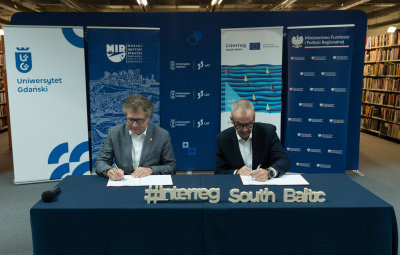
The presentations of the projects were followed by the ceremonial signing of agreements for co-financing both projects. The signatory of both documents on behalf of the Ministry of Funds and Regional Policy was Secretary of State Jacek Karnowski. The agreement on co-financing the FASD-Bridge project was signed by the Rector of the University of Gdańsk, prof. Piotr Stepnowski, and the agreement on co-financing the AIMused project was signed by the Director of MIR-PIB, dr Piotr Margoński.
The meeting culminated in an invitation to the participants to visit the exhibition ‘Witkacy Wielokrotny’ (Witkacy Multiple), prepared by the UG Museum. The exhibition was guided by the Director of the UG Museum, Marta Szaszkiewicz-Sawa.



